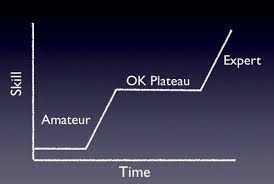Learning a language is a long process, and staying motivated on the way to fluency can be difficult. That is also why many people give up before achieving their objectives. It’s a lot easier to avoid the pitfalls and keep going until you’re satisfied with your foreign language skills if you understand the most common reasons individuals stop studying a language.
1.No defined roadmap


To prevent making this typical learning error, make a list of your main learning objectives. “I want to work in a French-speaking setting,” for example, or “I want to communicate with my Italian colleagues.” Start making the process more achievable once you’ve decided where you want to go.
2. Lack of time


Developing a healthy learning regimen is one approach to avoid letting your language learning fall to the bottom of your priority list. Create a strategy that works with your current daily routine rather than cram the 25th hour into the day, keeping the WHY in mind. Remember that the only way to become fluent truly is to practice continuously. Thus it doesn’t matter if you do it for 20 minutes or two hours a day as long as you put in the effort. At ELAM, we have developed our unique Beyond-the-classroom approach! We establish activities based on your interests.
3. You’ve progressed to the intermediate level and are unsure how to proceed.


Another prevalent issue is a language plateau, also known as a language learning plateau (LLP). The rapid growth you saw when you initially started has slowed, and that can be discouraging. Fortunately, there are several practical methods you may take to breakthrough learning barriers. In addition to the things you can do on your own, contacting ELAM and getting a professional language trainer at this time is a terrific option. A language class can help you understand the nuances of your target language and keep you motivated even during this difficult time.
In conclusion, make language learning work for you instead of against you. Focusing on what works for you in the learning process is a big part of avoiding giving up on your target language. Customize your language learning training plan to meet your ultimate objective, and keep it in mind even when you hit a plateau in the middle. Contact ELAM to get you going with a trainer that can provide support and coaching!
















